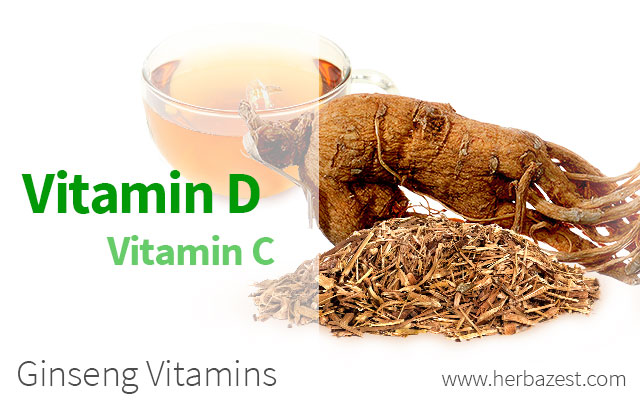Over the years, ginseng has been credited with increasing physical performance and enhancing mental capabilities. Ginseng health benefits are the result of high levels of vitamins, ginsenosides, alkaloids, fat-soluble components, and organic acids.
Ginseng's Vitamins Content
Although ginsenosides, the active compounds in all Panax species, are responsible for most of the many medicinal benefits of this herb, ginseng also has a notable nutritional content that may be of use in supplementing a healthy diet.
While ginsenosides are greatly potentiated when ginseng is dried and steamed, with red ginseng being the most medicinal form of this root, it is important to note that the nutritional content of ginseng decreases when it is processed, especially vitamin C, which is extremely sensitive to heat and light conditions.
Ginseng's Vitamin C Benefits
Vitamin C, or ascorbic acid, is an essential vitamin for human health and helps with treatment of a number of diseases, such as the common cold, by strengthening the immune system. Vitamin C is an antioxidant that plays a vital role in the upkeep of total body protein, the synthesis of muscle carnitine, and the absorption of dietary iron. The current U.S. daily recommended amount of vitamin C for adults is 100 - 120 mg daily.
Ginseng's vitamin C content is about 7.7 mg per 100 g.
Ginseng's Vitamin B Benefits
Vitamins B1 (thiamine) and B3 (niacin) are two water-soluble vitamins that are included in the vitamin B-complex group.
Vitamin B1 is important for energy production from glucose. Vitamin B3 is essential for cellular respiration, metabolism of carbohydrates, fats, and proteins, proper circulation, and functioning of the nervous system.
Ginseng's vitamin B3 helps with enhancing energy and achieving healthy skin, as well as with normal secretion of bile and stomach fluids.
How to Make the Most of Ginseng's Vitamins
While the best way to reap all the vitamin content of ginseng is by consuming it in its fresh, raw form, because of its bitter, strong taste, many people prefer to mix it with other ingredients or take ginseng supplements.
The vitamins, minerals, and main constituents in this herb are most easily consumed through ginseng tablets or capsules. The normal ginseng dosage ranges from 200 - 900 mg daily.
The dried ginseng root can also be added to a meal when ground into a powder or chopped up. It is also popular to add ginseng to tea with a little bit of honey to mask the taste.
While it is primarily known for its ginsenosides, ginseng also contains vitamins that are essential for a healthy body and mind. With a variety of herbal preparations available, ginseng's vitamins are easy to add to a daily diet.
Sources
- Journal of Ginseng Research, Actoprotective effect of ginseng: improving mental and physical performance, 2013
- La Revue du Praticien, [Vitamin B1 (thiamine)], 2013
- Psychoactive Substances, A Guide to Ethnobotanical Plants and Herbs, Synthetic Chemicals, Compounds and Products
- USDA Nutrient Database, Basic Report: 14188, Beverages, tea, green, ready to drink, ginseng and honey, sweetened
- Nutrition Journal, Vitamin C in human health and disease is still a mystery? An overview, 2003




